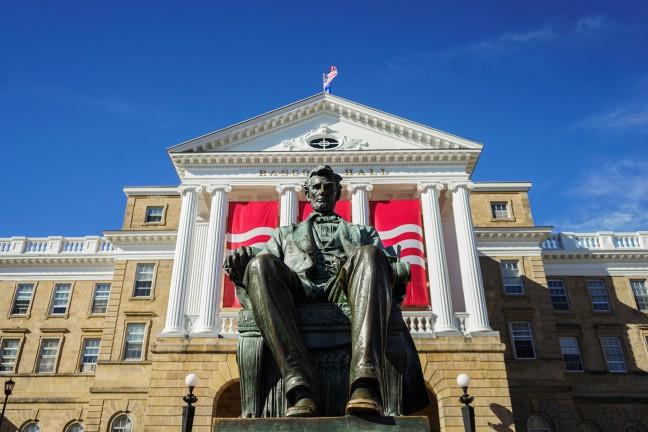University of Wisconsin Board of Regents gathered Thursday to listen to public opinion on UW Extension’s mission change, which includes granting special degrees in business and management to “nontraditional” students in Wisconsin and beyond.
Nontraditional students include those who are 25 years old or older, attending classes part-time or not living on or near campus, according the extension’s proposal.
The proposed draft of the mission change offers the UW Flexible Option degree, a direct-assessment competency-based program.
UW Extension proposes change to mission statement, catering to older students
The program is different from non-traditional online courses in that it has no classes; rather, faculty develop various competencies students need to master in order to receive certain degrees, UW Extension Chancellor Cathy Sandeen said.
During the hearing, Tamas Houlihan, executive director of Wisconsin Potato and Vegetable Growers Association, and Tom Lochner, executive director of Wisconsin State Cranberry Growers Association, both addressed their concerns about the program.
These organizations work closely with UW Extension and as well as UW’s College of Agricultural and Life Science, collaborating with faculty and researchers.
“Based upon 40 different publicly funded institutions already available to provide this type of service to residents, we question why we would add a 41st,” Lochner said. “Extension should focus on its current mission of extending the Wisconsin Idea, so we believe it’s a duplication of current options for people and citizens of the state.”
Houlihan said investing in a novice program taught by “time-limited faculty probably without focus expertise in the topic area” is unreasonable. He said this program will further limit UW’s and Wisconsin Potato and Vegetable Growers Association’s resources in a time of spending reduction.
The program, Houlihan said, will get in the way of extension experts’ longstanding goal: to conduct impactful research, be responsive to real-world industry issues and understand the needs of stakeholders.

In response, Sandeen said the education tasks only fall on the Division of Continuing Education Outreach and E-learning and will not affect the Cooperative Extension, the division that mainly conducts applied research to support the agricultural industry.
“It’s an anxiety of what might possibly happen if you don’t understand the real segregation of our various divisions in UW Extension,” Sandeen said.
In terms of financial risk, Sandeen reaffirmed the uniqueness of the UW Flexible Option degree.
There are only a handful of similar programs across the nation, Sandeen said, and the enormous need in Wisconsin makes the investment is worthwhile.
“If we track our projections in terms of enrollments, and where we’re heading, we will break even, according to our business model, Sandeen said. “And then at that point, we will start generating excess revenue that we will reinvest in the program and also share with the institutions who are collaborating with us on these programs.”
The Board of Regents will have a second reading of the proposal in December where they will vote on the mission change. If it passes, the board plans to begin admission to the program in fall 2016 for January 2017 enrollment.













